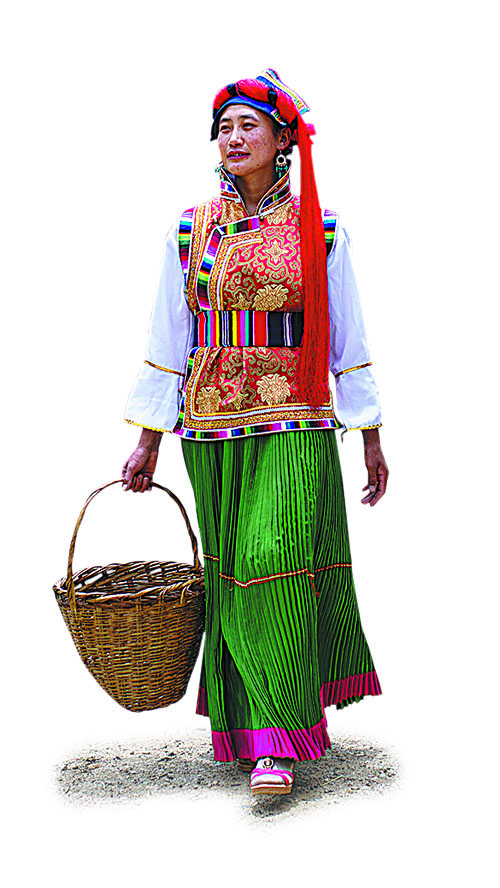

"After the founding of the People's Republic of China in 1949, the national policies of ethnic equality, unity and freedom of religious belief have promoted the harmony of the local ethnic groups, and formed the pattern where different ethnic cultures and religions coexist," Zhou says.
"Now this feature has become an important asset for local culture and tourism, attracting a large number of tourists to the area and increasing the locals' income. The driving force of the tourism economy has also in turn consolidated the multiethnic patterns."
While Dimaluo provides a miniature of ethnic diversity across Yunnan, a particular branch of the Naxi ethnic group called Malimasa serves as the human embodiment. People from this community are known for their ability to speak at least five languages.
He Wenqi, 77, from the Malimasa community, has been conducting research on his ethnic identity since 2003.
"Each of us can speak five languages-Mandarin, Tibetan, Naxi, Lisu and our unique Malimasa language. Some can speak two more-the languages of the Bai and Yi ethnic groups," he says.
"Sometimes people from different places might have trouble understanding one another. That's when we, Malimasa people, can interpret for them. Whenever we encounter other ethnic groups, we speak their language."
With a population of more than 2,100, Malimasa people mainly live in Tacheng town, Weixi Lisu autonomous county. Their villages intersperse with those inhabited by other ethnic groups, and it has become a custom for them to learn several languages to facilitate communication.
Chen Zhaofa, deputy head of Tacheng town, says the region plans to build a Malimasa exhibition hall that will display the culture and history of the community and host performances to tell their stories.
Of China's 56 ethnic groups, Yunnan is home to people from 26. In history, varied primeval ethnic groups migrated into the region and mixed with the aboriginals, according to Gao Zhiying, a professor at Yunnan University, who specializes in history and cultural studies of ethnic groups.
"The high mountains and deep valleys in Yunnan also made it difficult for the ethnic groups to interact with one another after they entered the area, resulting in the formation of ethnic groups with distinct cultural characteristics and made Yunnan's cultural diversity particularly outstanding," Gao says.